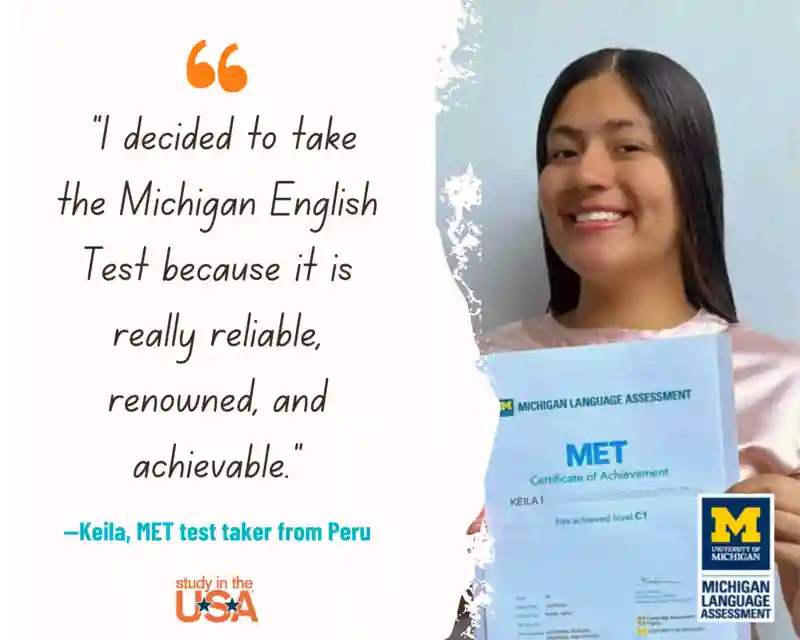Unlock Your Best Study Abroad Experience with the Right Support Services

Why schools like Northeastern Illinois University in Chicago offer the perfect American study destination
Studying abroad requires curiosity, determination, courage, and an open mind and heart. If you are applying for a degree in another country, you likely have these qualities! Of course, you will select a university that has your preferred academic program and great faculty at a price that fits your budget. You also want to select a university that provides the services that will make your transition easier and will support you throughout your studies (and beyond, if you stay in the U.S. to work).
The good news is many American universities provide such services. It is all about selecting the “right fit” university for you in terms of location, size, program, and support services. After all, this will be your home for a year or more.
Support Services
When considering different universities, take a moment to think about which support services will make your life as comfortable as possible. If you fit in well, you will be happy, and this will help to ensure you do well in your studies. Here is a list of services to ask about when deciding between universities:
- Orientation: What orientations does the university provide to international students? Virtual pre-arrival session? Upon arrival orientation? A handbook?
- International Student Support Office: If you come to the U.S. on an F1 student visa, it is important to “stay in status,” which means following all the rules of that visa. Each F1 student is assigned a Designated School Official (DSO) to work with while at the university. Find out in advance how easy it is to connect with a DSO. Can you chat with them via email or WhatsApp, etc.? Is it easy to get an appointment with them?
- Transportation: Does the university provide airport pickup when you arrive? Will someone meet you at the airport? Is there easy and affordable public transportation from the airport to the school? And within the city, once you are living there, how easy is it to get around?
- Housing: Some universities have on-campus housing. Others offer homestays. Others only provide you with information about off-campus housing options. If you don’t know anyone near the university with whom you can stay (at least at first), it is much easier to select an on-campus or homestay housing option. Increasingly, in U.S. cities, apartments are controlled by management companies that require you to have a U.S. bank account, references, and a tax ID number (e.g., Social Security number) before they let you sign a lease.
- Meeting Other Students: What help will the university provide you to meet other students? Is there an international student club? A buddy system that will connect you with an American student who can help you when you first arrive? What other student-centered or program-centered groups exist, and how can you connect with them?
- Counseling Services: Most American universities have personal counseling services. Make use of them! If you are a bit homesick at first, or feeling stressed, talking with someone in the counseling office can really help get you through a difficult moment.
- Career Services: Students on an F1 visa can work on campus while still a student, and sometimes you can also get paid internships off campus. Once you graduate, you can stay in the U.S. for 1–3 years to do Optional Practical Training (OPT), which allows you to work full-time. Currently, the U.S. has the strongest job market it has had in decades. Even so, you will want advice on drafting a U.S.–style resume and should consider practicing before you go to your first job interview. Career services offices arrange on-campus job fairs where you can meet employers and they can keep lists of companies that are willing to hire international students.
- Access to Faculty: Obviously you want to attend a university with excellent faculty. But just as important is being able to interact with faculty. The relationship between faculty and students is more casual in the U.S. than in many other countries. And faculty are required to have weekly office hours where you can stop by to discuss coursework or other academic issues. Ask about the student-to-faculty ratio, class sizes in your preferred academic program, and research opportunities — can a bachelor’s or master’s degree student work with faculty on research?
- Academic Tutoring: Most universities have a tutoring center where undergraduate students can get free help in basic required classes. They often also have writing centers that can help you learn how to write a good term paper.
- Disability Services: The U.S. federal Individuals with Disabilities Education Act (IDEA) stipulates that schools must provide reasonable accommodations for students with documented disabilities. For example — there are access ramps and automatic door openers to make buildings accessible to wheelchairs; a blind student can get a reader or a braille machine; a student with a learning disability can get extra time on a test; etc. If you require accommodation, ask to speak to someone who can explain exactly what the university can offer to you.
- Diversity and Inclusion: Part of finding the “right fit” university is knowing about the student body and the larger community. Are there people like you there? Is there programming on campus that discusses issues of cultural and ethnic diversity and provides support for people from different communities? Can you find the foods you like and relevant religious institutions in the local community?
- Food Services: Most universities have a cafeteria. Some are open only Monday through Friday for certain meals. Others offer meal plans that cover all meals. If you are living on campus, some housing options have full kitchens within the units that allow you to save money by preparing your own food to your own tastes.
- Health Services: Health care in the U.S. is expensive. Plan to purchase health insurance. Some universities have a required plan. Others allow you to select a plan from a private provider. Often universities will have a health services office that can treat very basic health issues and can provide information about health issues.
- Exercise: Is there a gym or other facilities where you can exercise? Keeping fit can help relieve stress and generally help you stay healthy!
Northeastern Illinois University
Northeastern Illinois University, a small public university located in Chicago, the third largest city in the U.S., offers all of the services listed above. Northeastern is the most diverse university in its region with lots of support for all communities. Its 11:1 student-to-faculty ratio and research opportunities, even for undergraduates, mean students work closely with faculty.
Northeastern also offers additional services to help keep costs down: the Free Store offers second-hand household items to help furnish your apartment; the Power Closet provides clothing for job interviews; and the Pantry provides free food to help stretch your monthly budget.
Northeastern Illinois University
Get matched to the best program for you
Let us know what you're looking for so we can find the best school for you.
Useful Articles
Check Out These Schools



Glendale Community College
Typical cost per Year: $5,000—$10,000

Los Angeles City College
Typical cost per Semester: $1,000—$5,000

Berkeley Global
Typical cost per Semester: $15,000—$20,000
Start your U.S. adventure with Study in the USA

Learn About U.S. education financing, housing, and more
Resources
Learn about American culture and education direct from our experts at Study in the USA. Read more












